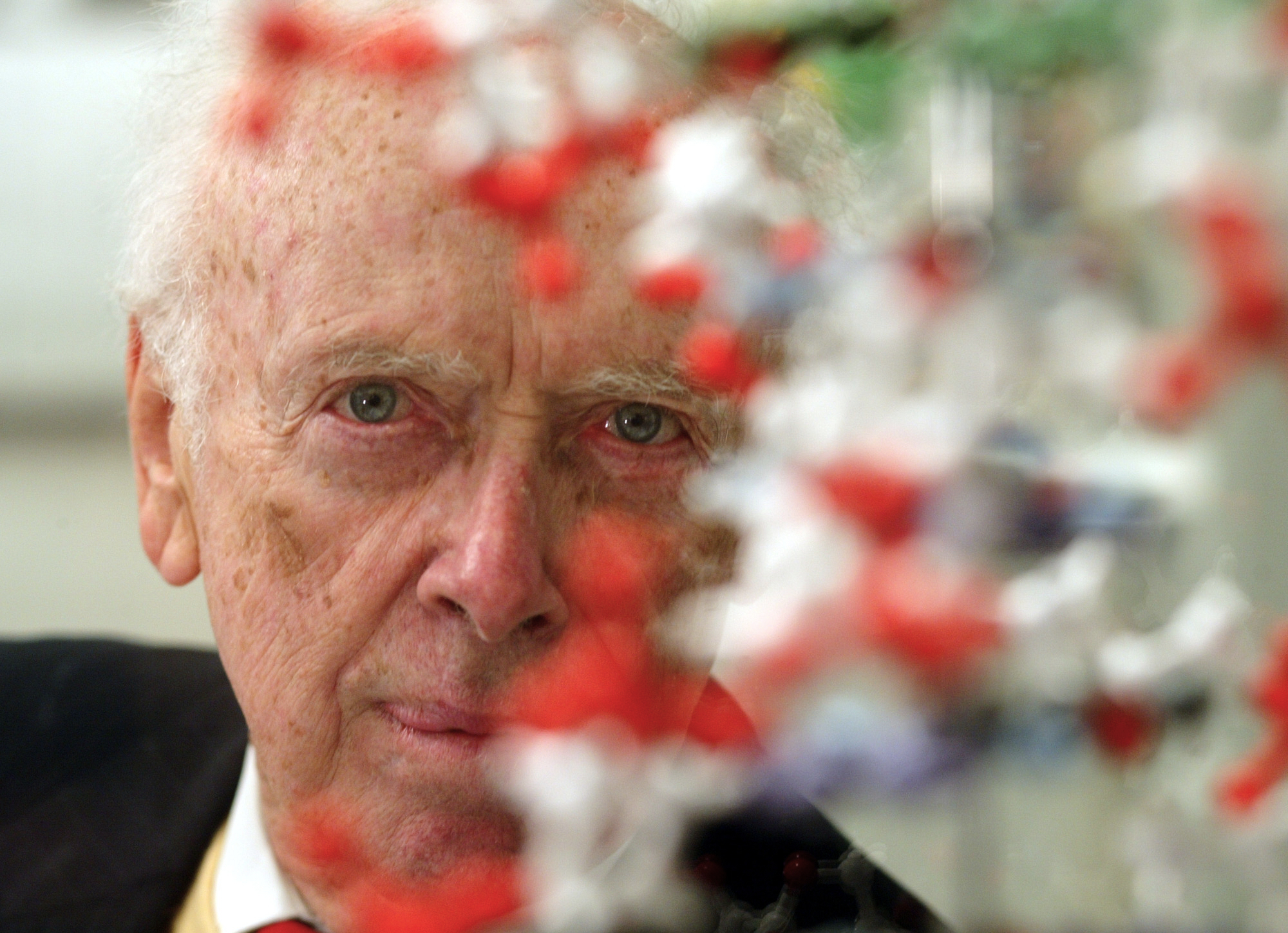Science
James Watson, Pioneer of DNA Discovery, Passes Away at 97

James D. Watson, the renowned scientist who co-discovered the double helix structure of DNA, has died at the age of 97. His passing marks the end of an era for a figure whose groundbreaking work in 1953 transformed various fields, including medicine, forensics, and genetics. Watson’s son confirmed that he died in hospice care following a brief illness, with his former research lab announcing his death just a day earlier.
Watson’s work alongside fellow scientist Francis Crick and Maurice Wilkins earned them the Nobel Prize in 1962, recognizing their pivotal discovery of DNA’s structure as a double helix. This discovery revealed how genetic information is stored and duplicated, providing a crucial insight into the processes of life. The visual representation of the double helix became an iconic symbol of science, influencing art and culture, and appearing in works by artists such as Salvador Dali.
The implications of Watson’s discovery extended far beyond the laboratory. It paved the way for advancements in genetic engineering, gene therapy, and forensic science, allowing for the identification of human remains and criminal suspects through DNA analysis. Additionally, it facilitated the exploration of genealogy, enabling individuals to trace their family histories and ancestral roots.
Despite his scientific acclaim, Watson’s later years were marred by controversy due to a series of inflammatory remarks, including those regarding race and intelligence. In a 2007 interview, he suggested that genetic differences could account for disparities in intelligence among races, sparking widespread condemnation. Following these remarks, the Cold Spring Harbor Laboratory suspended him from his position as chancellor, where he had served for nearly 40 years, and later revoked several honorary titles.
Throughout his career, Watson maintained a complex legacy marked by both remarkable scientific achievement and contentious opinions. Dr. Francis Collins, former director of the National Institutes of Health, expressed the duality of Watson’s impact, stating, “His outbursts, particularly when they reflected on race, were both profoundly misguided and deeply hurtful.”
Watson’s scientific journey began early in life. Born on April 6, 1928, in Chicago, he was raised in a family that valued education and critical thinking. By the age of 15, he enrolled at the University of Chicago, where he developed an interest in genetics after reading about the significance of genes. His pursuit of knowledge led him to Europe, where he met Crick at Cambridge University, and together they embarked on a quest to elucidate the structure of DNA.
Their collaboration was bolstered by the crucial X-ray diffraction work of Rosalind Franklin, whose contributions have since gained recognition. Watson and Crick famously built models of DNA, culminating in the realization of its double helical structure, which Watson described as “so beautiful.”
Following the discovery, Watson’s career flourished. He held positions at prestigious institutions, including the California Institute of Technology and Harvard University, where he established a molecular biology program. In 1968, he became the director of Cold Spring Harbor Laboratory and later its president. His leadership transformed the institution into a vibrant center for research and education, particularly in cancer research.
In the 1990s, Watson played a pivotal role in the Human Genome Project, advocating for ethical considerations in genetic research. He was present at the White House in 2000 when the project announced a “working draft” of the human genome, a milestone in understanding human genetics.
Watson’s later years saw a decline in his public standing, partly due to his controversial views on race and genetics. He continued to face backlash for statements made throughout his career. Despite these controversies, his scientific contributions remain significant, and he is often cited among the greats in the history of biology, alongside figures like Charles Darwin and Gregor Mendel.
As a vital figure in the field of genetics, Watson’s legacy encompasses both his scientific breakthroughs and the ethical discussions they have inspired. His work has undeniably shaped the landscape of modern science, raising important questions about the implications of genetic research on society.
-

 Politics2 weeks ago
Politics2 weeks agoHamas Chief Stresses Disarmament Tied to Occupation’s End
-

 Science2 weeks ago
Science2 weeks agoOhio State Study Uncovers Brain Connectivity and Function Links
-

 Entertainment2 weeks ago
Entertainment2 weeks agoMegan Thee Stallion Exposes Alleged Online Attack by Bots
-

 Science3 weeks ago
Science3 weeks agoResearchers Challenge 200-Year-Old Physics Principle with Atomic Engines
-

 Entertainment2 weeks ago
Entertainment2 weeks agoPaloma Elsesser Shines at LA Event with Iconic Slicked-Back Bun
-

 Top Stories2 weeks ago
Top Stories2 weeks agoFederal Agents Detain Driver in Addison; Protests Erupt Immediately
-

 Business2 weeks ago
Business2 weeks agoHome Depot Slashes Prices on Halloween Favorites Up to 75%
-

 Top Stories2 weeks ago
Top Stories2 weeks agoOrioles Hire Craig Albernaz as New Manager Amid Rebuild
-

 Entertainment2 weeks ago
Entertainment2 weeks agoSyracuse Stage Delivers Lively Adaptation of ‘The 39 Steps’
-

 Top Stories2 weeks ago
Top Stories2 weeks agoWill Smith Powers Dodgers to World Series Tie with Key Homer
-

 World3 weeks ago
World3 weeks agoGlobal Military Spending: Air Forces Ranked by Budget and Capability
-

 Politics3 weeks ago
Politics3 weeks agoNHP Foundation Secures Land for 158 Affordable Apartments in Denver









